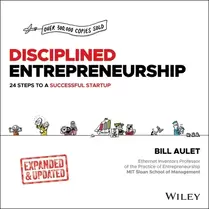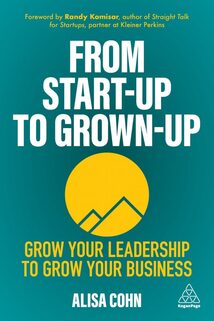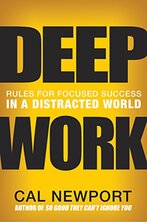 A while ago, I heard a fellow founder recommend Disciplined Entrepreneurship: 24 Steps to a Successful Startup by Bill Aulet, and I just finished reading it. The author teaches entrepreneurship at MIT and wrote a no-nonsense, direct, clear book about the exact process that helps go from 0 to 1 and de-risk a new venture. It built on and referenced many other classic books on the subject and reminded me of Steve Blank's Startup Owner's Manual. I recommend it as a great starting point when considering and researching a new idea as it will provide a great structure and many relevant points to research and hone from the beginning. Below are some of my main notes and takeaways.
0 Comments
 I heard about Alisa Cohn from the podcast she did with Tim Ferriss. I recently finished reading her book From Start-Up to Grown-Up: Grow Your Leadership to Grow Your Business, and I really liked it and learned a lot. It served as an excellent overview of many parts of leadership and management and how those evolve as a company grows. I also loved that she had an appendix full of actual scripts for the most delicate situations that are so common. Below are my main takeaways and notes on the book. I highly recommend it to any entrepreneur running a business that's growing.  My friend recommended Deep Work: Rules for Focused Success in a Distracted World by Cal Newport, and I just finished reading it. It gave me a lot to think about and ideas to consider for "minimizing the shallow" in my life and carving out more periods of time for work on the long-term, less urgent, deeper things that matter more. I definitely have found myself falling into the trap of shallow work. The deep vs. shallow concept also reminded me of the maker vs. manager schedule by Paul Graham. When you're a founder, there are elements of the job that are deeper and elements that are shallower, and figuring out how to balance between them isn't easy. This book gives some good advice on setting up a balanced schedule with different types of approaches offered to move back and forth. I definitely think this book is helpful for founders and others wondering how to free up more time for deeper work. Below are my main notes and takeaways. |
Archives
February 2023
Categories
All
Subscribe |
 RSS Feed
RSS Feed

